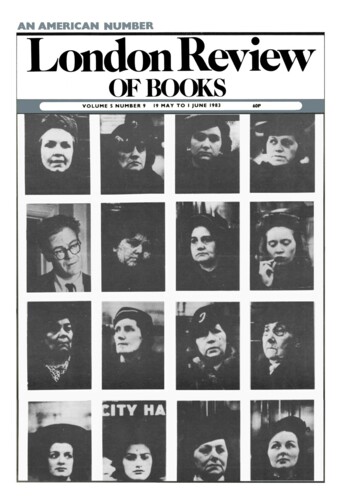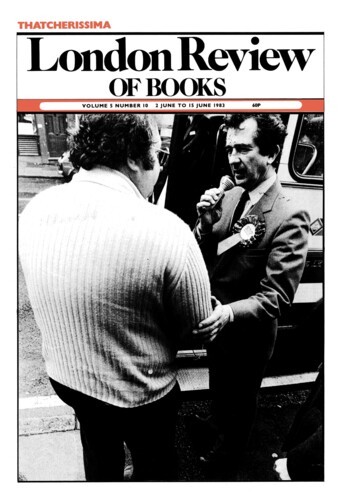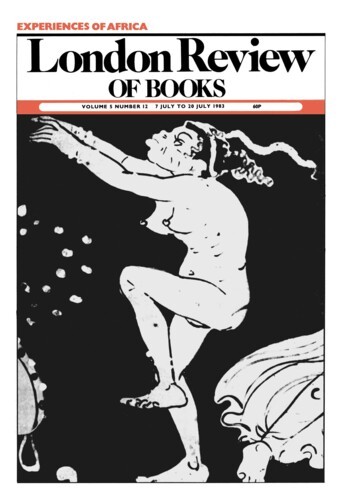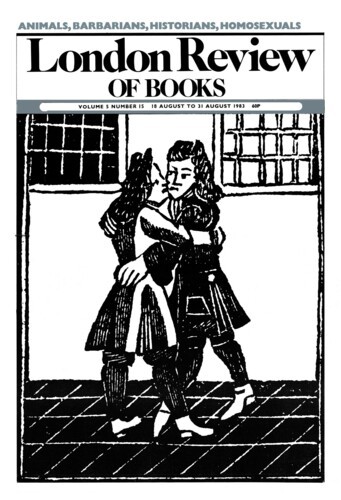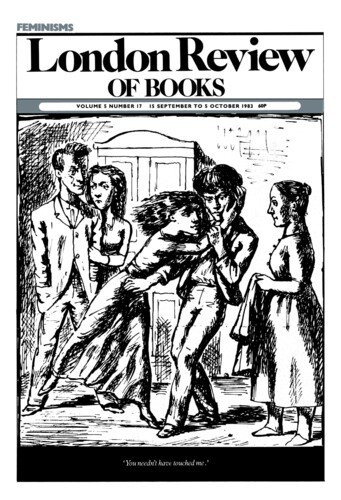Boss of the Plains
D.A.N. Jones, 19 May 1983
Paul Fussell’s 34 essays were written in different moods and time-zones for different British and American journals, between 1967 and 1982. Some are boyishly truculent, politically partisan, denouncing wrong-headed fellow Americans (so that the British reviewer whistles between his teeth, thinking: ‘They can’t be as bad as all that’). Others are what he calls ‘ironical’, with complaints against Americans who misunderstand his tone: he seems to expect British readers to do better. Still other essays – about warfare and his own military experiences – are so confessional and impassioned that the British reviewer feels he needs to be very tactful.–
